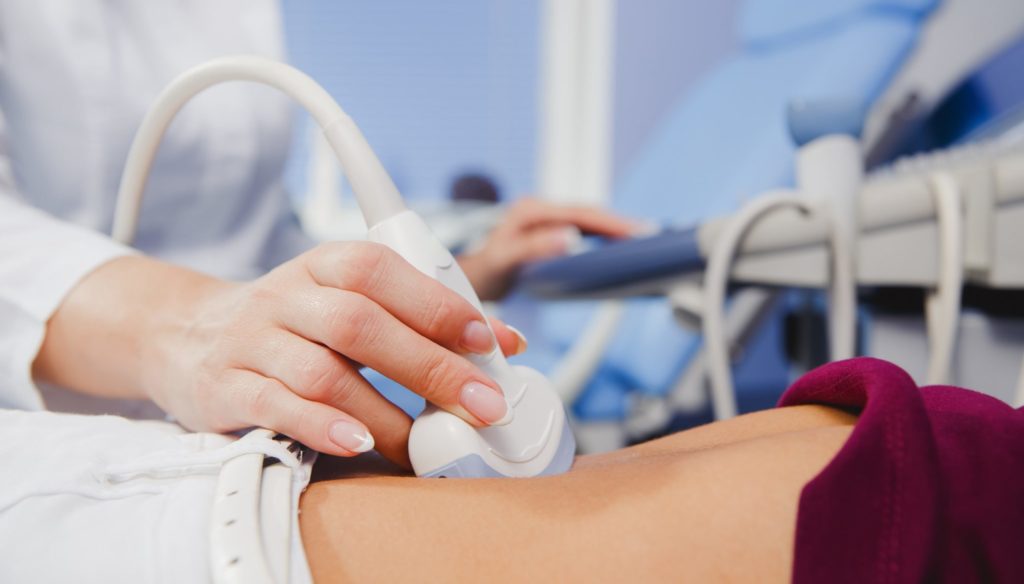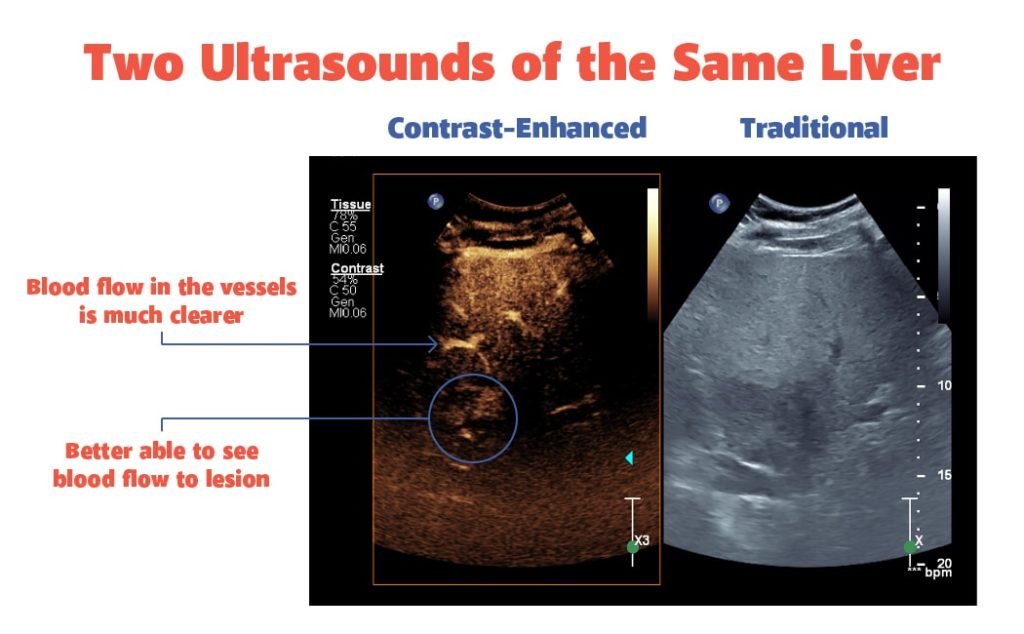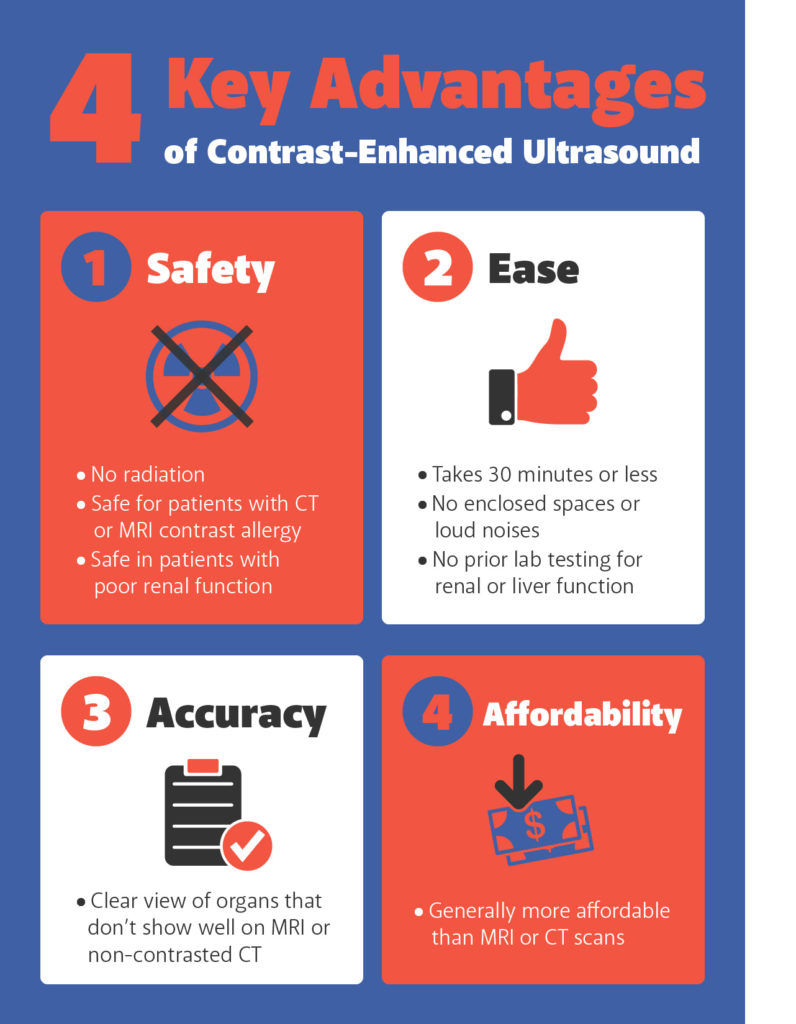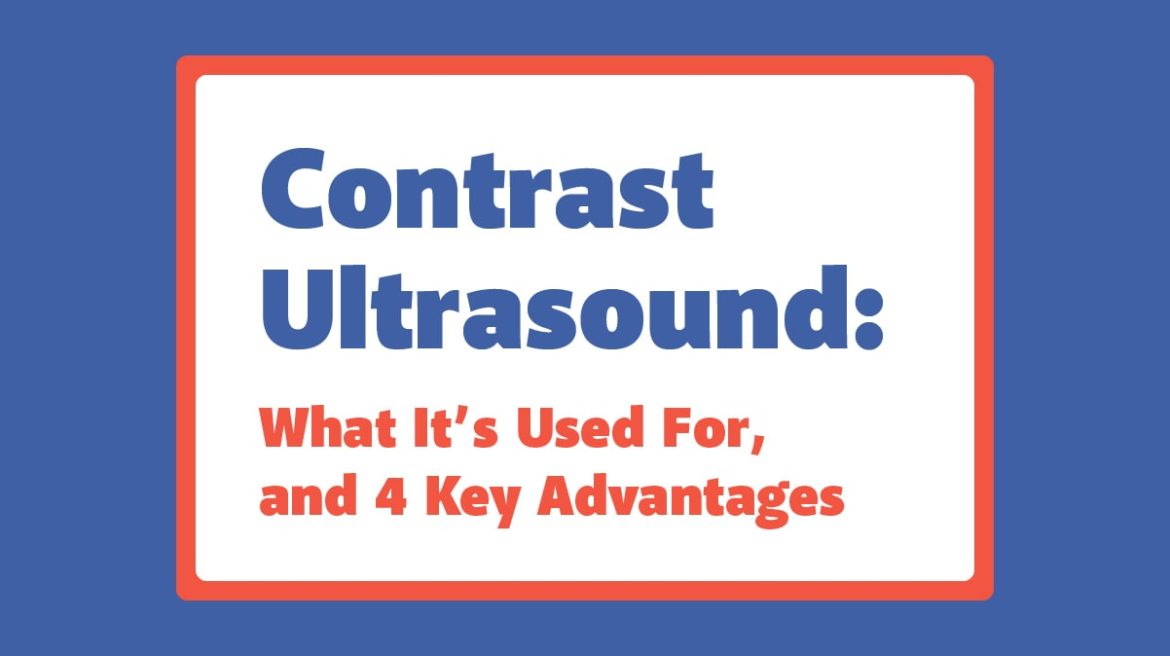If you need advanced medical imaging, your doctor might order an MRI or CT scan. But there might be an alternative which doesn’t expose you to radiation (like a CT scan) or require you to lie still for a long period of time in an enclosed space (like an MRI): contrast-enhanced ultrasound.
At UVA Radiology and Medical Imaging, contrast ultrasound can sometimes replace other imaging tests in adults and children, especially for the liver or urinary system. Learn about how this safe and painless procedure is performed and 4 key advantages it holds over other imaging tests.
Ultrasound and Contrast: Working Together for Your Health

Contrast-enhanced ultrasound (or CEUS) brings together two imaging tools: ultrasound and contrast agents. The combination of these two techniques creates accurate, detailed images of internal organs. Here at UVA Health, CEUS can often replace CT scans or MRIs of the liver, kidneys, or bladder in children and adults. Occasionally, it can be used to image other parts of the body as well.
Ultrasound is a safe and painless procedure that produces real-time images of the inside of your body using sound waves. It’s non-invasive, has no known side effects, and doesn’t use radiation.
During an ultrasound, a technologist guides a small probe over your skin. A warm gel is applied to your skin to make sure there are no air pockets between your skin and the probe. The technologist will move the probe around to get multiple images of the organ being examined. It usually takes only 20-30 minutes for the technologist to get all the images they need.
A special kind of contrast is used for contrast-enhanced ultrasound which is made up of gas-filled microbubbles. Partway through the ultrasound, this contrast is injected into your bladder with a catheter or your blood vessels through an IV line. This allows the technologist to take images both with and without contrast. Once injected, these tiny bubbles travel to your organs and make the organs much more visible on ultrasound.

The contrast solution used for CEUS at UVA is called Lumason. It’s been safely used in imaging of the heart for many years, and the likelihood of allergies to this contrast is rare compared to either MRI or CT contrast. A single injection of this contrast is equivalent to only a few drops of liquid. And after about 10 minutes in the body, the microbubbles are harmlessly exhaled through your lungs, avoiding any possible injury that CT or MRI contrast can sometimes bring.
What Contrast-Enhanced Ultrasound is Used For
At UVA, contrast ultrasound is most commonly used to image the liver, kidneys, and bladder, though it can also be used to image other organs and parts of the body. The contrast agent we use is approved in the United States by the Food and Drug Administration (FDA) for use in examining both the liver and urinary system. In other countries, it has been safely used to image other organs for many years.
The main reasons you would have a contrast-enhanced ultrasound are:
- To get better-quality images of an abnormality seen on a regular ultrasound, CT scan, or MRI
- To monitor a known abnormality for changes in size or appearance
- To image organs after trauma, infection, or suspected masses
- To monitor the liver for hepatocellular carcinoma (a type of liver cancer) in patients with cirrhosis (scarring of the liver)
- To image the liver or urinary system in patients who are allergic to the contrast used in CT or MRI
- To check how open a blood vessel is, or to look for clots in a vein
- To differentiate a gallbladder tumor from benign sludge
4 Key Advantages
Contrast-enhanced ultrasound is safe and easy procedure, accurate at imaging internal organs, and more affordable than alternatives like CT scans or MRIs. Check out the following infographic to learn more about the key advantages of CEUS:

Contrast-Enhanced Ultrasound at UVA
At UVA Radiology and Medical Imaging, we prioritize the safety and experience of our patients. That’s why we’re proud to offer CEUS as an option for those patients needing imaging. Our sub-specialized radiologists and ultrasound technologists have been specifically trained to perform and interpret CEUS.
If you or your child need advanced imaging such as CT or MRI, talk to your care provider about contrast-enhanced ultrasound at UVA. Or call 1 (434) 243-0321 to set up a consultation today.
Infographic Text: 4 Key Advantages of Contrast Ultrasound
- Safety
- No radiation
- Safe for patients with CT or MRI contrast allergy
- Safe in patients with poor renal function
- Ease
- Takes 30 minutes or less
- No enclosed spaces or loud noises
- No prior lab testing for renal or liver function
- Accuracy
- Clear view of organs that don’t show well on x-ray
- Faster diagnosis than CT or MRI
- Affordability
- Generally more affordable than MRI or CT scans



